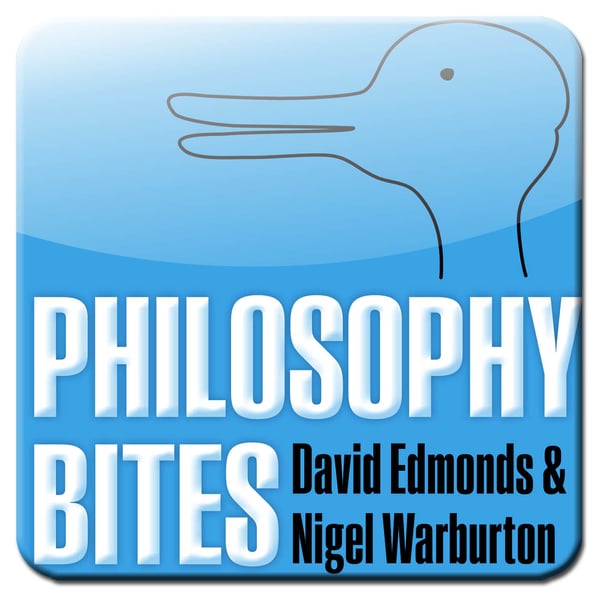Alex Neill - the Paradox of Tragedy
Philosophy Bites
Nigel Warburton
4.6 • 2K Ratings
🗓️ 3 August 2008
⏱️ 17 minutes
🧾️ Download transcript
Summary
Transcript
Click on a timestamp to play from that location
| 0:00.0 | This is Philosophy Bites with me David Edmonds and me Nigel Warburton. |
| 0:07.0 | Philosophy Bites is available at W. |
| 0:09.0 | philosophy Bites.com. |
| 0:11.0 | George Bernard Shaw thought that comedy was like drama in which everyone was married in the last |
| 0:16.6 | act while tragedy was heavy drama in which everyone was killed. |
| 0:20.8 | It's been a puzzle for philosophers for several thousand years that people like to watch tragedies, which evoke feelings of sadness and suffering. |
| 0:28.0 | The same mystery attaches to horror movies which aim to shock and scare. |
| 0:33.0 | Professor Alex Neal has the happiest of roles as the University of Southampton's foremost expert on tragedy. |
| 0:39.0 | Alex Neal, welcome to Philosophy Bynes. |
| 0:41.0 | Hi Nigel. |
| 0:42.0 | The topic we're going to focus on today is the paradox of |
| 0:45.2 | tragedy. I wonder if you could begin by saying what this paradox is. The paradox of tragedy |
| 0:51.7 | is something that's been written about by philosophers for thousands of years. |
| 0:55.6 | It probably gets its classical expression in Aristotle's Poetics, |
| 1:00.9 | where Aristotle defines tragedy as an art form in terms of the affective, the emotional response that it's designed to generate. |
| 1:10.0 | And that is, as he says, the catharsis of pity and fear. |
| 1:15.0 | Catharsis is usually taken to mean something like a purging or a cleansing of emotion. |
| 1:20.0 | And Aristotle makes it clear that he thinks that catharsis as the end or the goal, the |
| 1:25.4 | T-loss of tragedy is something that's meant to be pleasurable. Indeed, he says the job of the tragic |
| 1:32.1 | poet is to aim at producing in the audience a particular kind of |
| 1:37.4 | pleasure and he describes that as the pleasure of pity and fear. |
| 1:41.4 | Okay so it doesn't sound anything paradoxical about producing pity or fear? |
... |
Please login to see the full transcript.
Disclaimer: The podcast and artwork embedded on this page are from Nigel Warburton, and are the property of its owner and not affiliated with or endorsed by Tapesearch.
Generated transcripts are the property of Nigel Warburton and are distributed freely under the Fair Use doctrine. Transcripts generated by Tapesearch are not guaranteed to be accurate.
Copyright © Tapesearch 2025.

